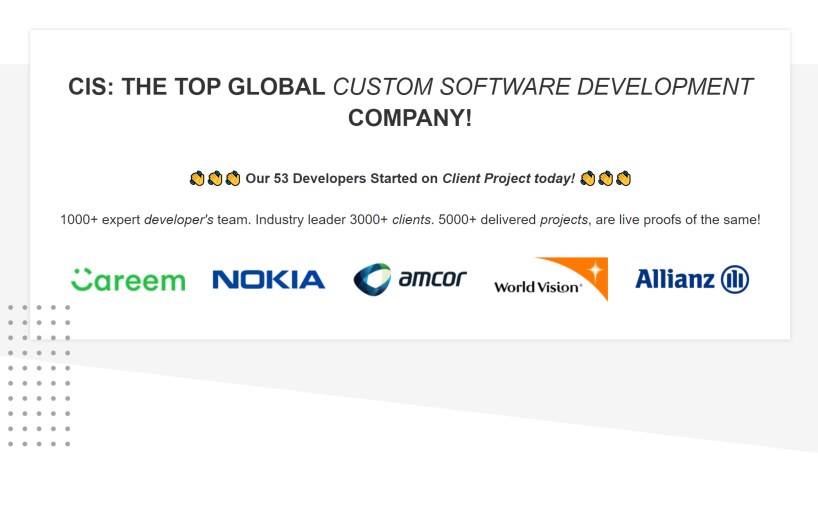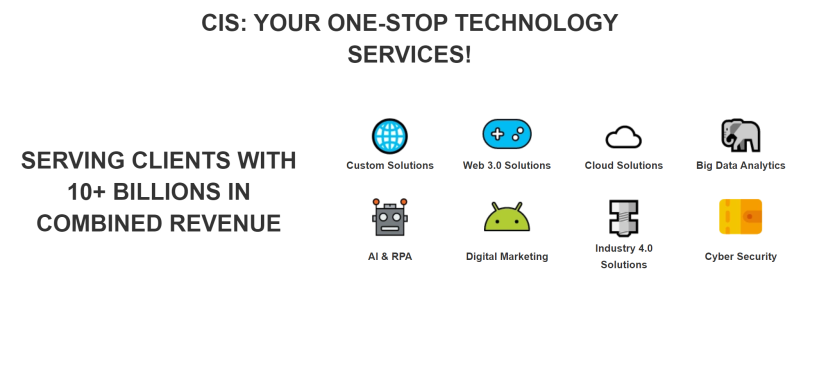Maximizing ROI: The Cost and Benefits of Adopting Sap Erp Integrations With Microsoft Azure for Your Business
- SAP ERP integrations with Microsoft Azure - Detailed Analysis by Enterprise Solutions Experts
Request A Free Consultation - Why Use SAP ERP Integrations With Microsoft Azure



Why Mid-size Companies and Enterprises needs SAP ERP Integrations With Microsoft Azure:
Mid-size companies and enterprises need SAP ERP integrations with Microsoft Azure because it enables them to take advantage of the scalability, security, and reliability offered by a cloud platform. This integration allows for rapid deployment of new applications or services, as well as improved access to data from disparate sources. The integration also helps mid-size companies reduce their IT costs associated with managing on-premises infrastructure while still providing the same level of performance and control over their critical business processes. Additionally, this integration provides an enterprise-grade platform that is secure and compliant with industry standards such as GDPR (General Data Protection Regulation).
Benefits of using SAP ERP Integrations With Microsoft Azure in Mid-size companies and Enterprises:
1. Increased Efficiency:
By integrating SAP ERP with Microsoft Azure, mid-size companies and enterprises can streamline their processes and increase the efficiency of their operations. This helps them save time and money while improving customer experience.
2. Improved Security:
SAP ERP integration with Microsoft Azure provides enhanced security for data stored in the cloud environment, reducing the risk of unauthorized access or manipulation of sensitive information.
3. Scalability:
Companies can easily scale up or down on demand as they grow without worrying about infrastructure requirements or capacity constraints due to an integrated cloud platform like Microsoft Azure which allows for rapid scalability when needed.
4. Cost Savings:
By utilizing a cloud-based solution such as Microsoft Azure, companies can reduce hardware costs associated with traditional on-premise solutions while also taking advantage of pay-as-you go pricing models that are tailored to business needs rather than fixed monthly fees based on usage levels.Detailed Features of SAP ERP Integrations With Microsoft Azure for Mid-size companies and Enterprises:
1. Automated Data Synchronization:
SAP ERP integrations with Microsoft Azure allow for automated data synchronization between your on-premise and cloud-based systems, reducing the need for manual intervention and ensuring that all of your business information is up to date.
2. Secure Connectivity:
With secure connectivity provided by Microsoft Azure, you can be sure that all of your sensitive business data remains safe from unauthorized access or manipulation.
3. Enhanced Performance:
By leveraging the power of the cloud, organizations can take advantage of enhanced performance when running their SAP applications in conjunction with other enterprise resources such as databases and analytics platforms hosted on Azure.
4. Simplified Management Tasks:
Organizations no longer have to worry about managing multiple versions of their ERP system as they are able to manage everything through a single dashboard within Microsoft Azure's portal environment. This helps reduce costs associated with IT management while also streamlining operations across departments or divisions within an organization..
5. Cost Savings:
By eliminating hardware investments required for traditional infrastructure setups, mid-size companies and enterprises are able to realize significant cost savings when deploying their applications on Microsoft Azure instead of relying solely on physical servers or workstations located in house..
6 Scalability & Flexibility:
Through its scalability capabilities, businesses can scale up quickly without having to invest in additional hardware resources each time they require more capacity due to increased demand from customers or internal processes..Request A Quote - Why Use SAP ERP Integrations With Microsoft Azure
Who are the Users of SAP ERP Integrations With Microsoft Azure:
The customers using SAP ERP integrations with Microsoft Azure include large enterprises, mid-market companies, and small businesses across a variety of industries such as retail, manufacturing, finance, healthcare and more.
How to ensure Data Security and Compliance with SAP ERP Integrations With Microsoft Azure:
1. Use a secure connection protocol:
When integrating SAP ERP with Microsoft Azure, it is important to use a secure connection protocol such as HTTPS or SFTP. This will ensure that data is encrypted and transferred securely between the two systems.
2. Implement strong authentication:
Implement strong authentication methods such as multi-factor authentication (MFA) for both users and applications accessing the integration platform in order to prevent unauthorized access to sensitive data.
3. Ensure compliance with relevant regulations:
Make sure your integration solution complies with all applicable laws, regulations, standards, and guidelines related to data protection, privacy, security and compliance when transferring information between SAP ERP and Microsoft Azure environments.
4. Monitor activity logs:
Regularly monitor the activity logs of your integration platform in order to detect any suspicious activities or potential threats that may be occurring on either side of the system's environment.How SAP ERP Integrations With Microsoft Azure can increase organization Productivity, Agility, and Profitability:
SAP ERP integrations with Microsoft Azure can increase organization productivity, agility, and profitability by providing a secure cloud-based platform for businesses to access their SAP applications. This integration allows organizations to quickly deploy new services and applications on the cloud platform, giving them greater flexibility in how they use their data. Additionally, it provides advanced analytics capabilities that allow companies to gain insights from their data more quickly than ever before. Finally, this integration allows organizations to scale up or down their operations as needed without having to invest in additional hardware or software licenses. All of these benefits result in improved performance and cost savings which ultimately leads to increased organizational productivity, agility, and profitability.
Request A Quote - Why Use SAP ERP Integrations With Microsoft Azure
How to Measure KPIs and increase Benefits of implementing SAP ERP Integrations With Microsoft Azure in Mid-size companies and Enterprises:
1. Track the number of successful integrations completed:
Tracking the number of successful SAP ERP integrations with Microsoft Azure that have been completed can provide an indication of how effective the integration process is and whether or not it is meeting expectations.
2. Monitor system performance metrics:
System performance metrics such as uptime, response time, and throughput should be monitored to ensure that any issues are quickly identified and resolved before they become a major problem. It's important to monitor these metrics on an ongoing basis in order to identify any potential problems early on and take corrective action if necessary.
3. Analyze cost savings:
Companies should analyze the cost savings associated with implementing SAP ERP integrations with Microsoft Azure in order to determine if the investment is worth it over time. Cost savings could include reduced IT costs due to fewer manual processes or improved efficiency through automation capabilities provided by the integration solution.
4. Measure user satisfaction levels:
User satisfaction levels should also be monitored regularly in order to gauge how well users are responding to changes made as a result of integrating SAP ERP with Microsoft Azure solutions. This will help companies understand where improvements can be made in terms of usability or features offered by their solution in order for them to get maximum benefit from their implementation efforts over time.How SAP ERP Integrations With Microsoft Azure can increase Employee Morale in your organization:
SAP ERP integrations with Microsoft Azure can increase organization employee morale by streamlining processes and increasing efficiency. By integrating SAP ERP into the cloud, employees will have access to more up-to-date data, which can help them make better decisions faster. It also helps reduce manual errors and makes it easier for employees to collaborate on projects. Additionally, using Microsoft Azure allows organizations to take advantage of predictive analytics tools that can provide insights into customer behavior and market trends. All of these benefits lead to improved business performance and increased employee satisfaction, resulting in higher morale in the workplace.
How SAP ERP Integrations With Microsoft Azure is Better than its Competitors:
SAP ERP integrations with Microsoft Azure offers a number of advantages over its competitors, such as:
1. Seamless integration and scalability - SAP ERP integrates seamlessly with Azure's cloud-based services to provide organizations with the flexibility to scale up or down their operations quickly and easily.
2. Security - With Azure's advanced security features, customers can rest assured that their data is safe from malicious attacks and unauthorized access.
3. Cost savings - By leveraging the pay-as-you-go model offered by Azure, organizations can save on upfront costs associated with purchasing hardware and software licenses for traditional on-premise solutions.
4. Automation capabilities - With automated processes enabled by SAP ERP integrations with Microsoft Azure, organizations can reduce manual labor costs while increasing efficiency in their operations.
Request A Quote - Why Use SAP ERP Integrations With Microsoft Azure
Cost to Develop & Implemention of SAP ERP Integrations With Microsoft Azure:
The cost to develop and deploy SAP ERP integrations with Microsoft Azure will vary depending on the scope of the project and the complexity of the integration. Generally speaking, professional services for such an implementation can range from $20,000 to over $100,000. Additionally, there may be additional costs associated with licensing fees or cloud hosting costs that need to be taken into account when budgeting for this type of project.
Why outsourcing implementation services for SAP ERP Integrations With Microsoft Azure is better for Mid-size companies and Enterprises:
Outsourcing implementation services for SAP ERP integrations with Microsoft Azure is a great option for mid-size companies and enterprises because it provides access to experts who are experienced in the process. These experts can provide guidance on how to best utilize the technology, as well as provide assistance with any issues that may arise during the integration process. Outsourcing also helps save time and money by allowing businesses to focus their resources on more important tasks instead of spending time trying to learn and implement new technologies. Additionally, outsourcing gives companies access to advanced tools and features which can help them streamline their processes and increase efficiency.
Request A Quote - Why Use SAP ERP Integrations With Microsoft Azure


